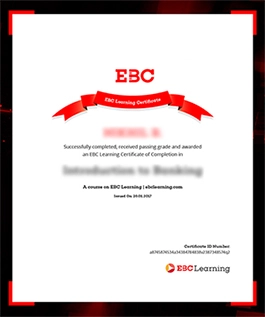Contract Law Essentials: Mod 7 — Sale of Goods Act

About Course
Business has many facets. One of its components is the exchange of goods and services for money or other assets. The concept of sale includes the transfer of property and ownership from one person to another, that is, seller to buyer. The definition of ‘goods’ has been a subject of interpretation over the years. Time and again, the courts have interpreted the word 'goods', based on the nature of the subject matter for sale.
The Sale of Goods Act, 1930 identifies and lays down the basic principles relating to transfer in ownership, passing or risk with ownership, how a buyer gets a good title, remedies of the buyer if goods are not sold to him, remedies of a seller if he remains unpaid etc. With the paradigm changes in trade and commerce over the years, the Act no doubt needs some major reforms, but nevertheless, its relevance lies in determining ownership in goods and rights and duties of buyers and sellers.

Every sale has five obstacles: no need, no money, no hurry, no desire, no trust.
Zig Ziglar- I. Flashcards
- a) Flashcards
- 1. Introduction
- 1.1 Introduction
- 2. Formation of contract of sale of goods
- I. Relevant sections
- 2.1 Essential features of sale of goods
- 2.2 Sale and agreement to sell
- 2.3 Distinction between sale and hire-purchase
- II. Exercises
- III. Examination pointers
- IV. Full text of leading cases
- ☆ Feedback
- 3. Definitions
- I. Relevant sections
- 3.1 Goods
- 3.2 Kinds of goods
- 3.3 Document of title to goods
- 3.4 Price
- II. Exercises
- III. Examination pointers
- IV. Full text of leading cases
- 4. Effects of destruction of goods
- I. Relevant sections
- 4.1 Goods perishing before the contract of sale
- 4.2 Goods perishing after contract but before the sale
- II. Exercises
- III. Full text of leading cases
- 5. Conditions and warranties
- I. Relevant sections
- 5.1 Stipulations in a contract
- 5.2 Condition treated as warranty
- 5.3 Express and implied conditions and warranties I
- 5.4 Express and implied conditions and warranties II
- 5.5 Caveat emptor
- II. Exercises
- III. Examination pointers
- IV. Full text of leading cases
- 6. Transfer of property in goods
- I. Relevant sections
- 6.1 Transfer or passing of property
- 6.2 Effect of transfer of ownership or passing of property
- 6.3 Transfer of ownership of goods sent ‘on approval’ or on sale or return’ basis
- 6.4 Reservation of right of disposal
- 6.5 Transfer of title by non-owner
- II. Exercises
- III. Examination pointers
- IV. Full text of leading cases
- 7. Delivery of goods
- I. Relevant sections
- 7.1 Delivery of goods
- 7.2 Delivery of wrong product
- 7.3 INCOTERMS
- 7.4 Acceptance of delivery
- II. Exercises
- III. Examination pointers
- IV. Full text of leading cases
- 8. Rights and duties of seller and buyer
- I. Relevant sections
- 8.1 Definition of unpaid seller
- 8.2 Rights against goods
- 8.3 Rights of unpaid seller against buyer personally
- 8.4 Duties of seller
- 8.5 Rights and duties of buyer
- II. Exercises
- III. Examination pointers
- 9. Auction sales
- I. Relevant sections
- 9.1 Auction sales
- II. Exercises
- III. Examination pointers
- IV. Full text of leading cases
- II. INDEX (FULL TEXT OF CASES)
- INDEX: Full text of cases
- ☆ Feedback
Instructors

Dr Pratima Narayan
Advocate & Mediator, Co-founder, Techlawlogi Consulting LLP
Dr Pratima Narayan has served the legal academia for over 20 years as a visiting faculty at various reputed law schools and business schools. Her expertise lies in areas of commercial contracts, consumer law, e-commerce and Intellectual Property Rights.

Presented by: Dr Charu Mathur
Instructor, EBC Learning & AOR, Supreme Court
Dr Charu Mathur is an Advocate on Record with the Supreme Court of India. She has over 20+ years of rich and diverse expertise in corporate, commercial, civil, criminal and constitutional law matters.

A best-seller was a book which somehow sold well because it was selling well.
Daniel J. BoorstinCertificate
Complete this course and exercises to earn a certificate. Share it with your friends, colleagues, and employers.*
*You must Subscribe to get a certificate.

-
Ritik ojha
-
Ritik ojha
Limit Reached or Trial Expired
You have reached the limit of 2 audit enrollments or your trial period has expired.

